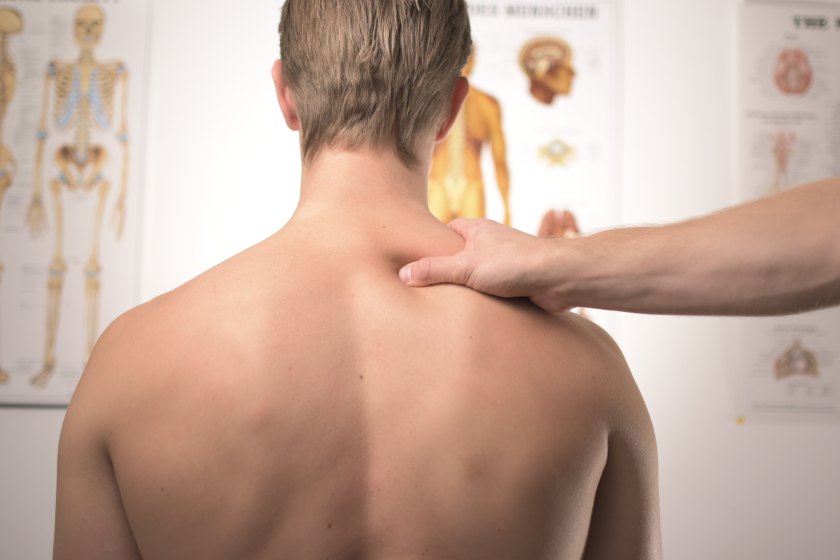
Photo by Jesper Aggergaard on Unsplash
Rotator cuff injuries (RCIs) are one of the most common causes of shoulder pain for people of all ages. They occur when damage is done to the group of muscles and tissues that surround the shoulder joint and are most prevalent in groups of people who perform frequent overhead motions. Examples include carpenters, painters, and baseball and tennis players. However, injury can also occur because of age. When the tendons are worn down, they can even tear. If you notice sudden pain or you have been battling pain for a while, take a proactive stance to injury and find the best combination of treatments so you can get back to normal life as soon as possible.
Rotator cuff injuries can cause chronic pain
The pain from an RCI can be acute or chronic. When the injury is caused by a sudden blow or brusque movement, acute pain can ensue but when damage is caused by wear and tear (which occurs in jobs that require frequent lifting, for instance), pain can be chronic. Symptoms that indicate injury or worn-out tendons include a dull ache in the deep shoulder, pain when lifting the arm, weakness, and difficulty sleeping, particularly if you lie on the injured shoulder. Regardless of the cause of your pain, it is vital to seek medical attention quickly, since failing to do so can make the problem worse.
What treatments exist for chronic pain caused by RCIs?
The goal of treatment for RCIs is to quell pain and improve movement. When a tear produces chronic pain, the usual approach is to try physical therapy, corticosteroid injections (for short-term relief), and anti-inflammatory oral medication. When pain persists, surgery is sometimes recommended. The emotional impact of injury should also be taken into account. In a study published in the journal BMC Musculoskeletal Disorders, C Minns Lowe et al note that doctors need to understand the intensity and shocking nature of the pain that can be experienced: “Clinicians need to be aware of the potential emotional impact caused by cuff tears and to ensure that patients needing help for conditions such as depression are speedily identified and provided with support, explanation and appropriate treatment.” RCIs can happen to anyone, but when they occur to people who depend on movement to make a living, their impact can be much stronger.
Can surgery help you?
Surgery should be strongly considered when chronic or intense pain is present, or when weakness follows a shoulder injury. If this is your case, your doctor will normally take an MRI to determine if you have enough remaining tissue for repair. There are many types of surgery for RCIs, including arthroscopic tendon repair, in which a small camera is inserted and tools are used to reattach the torn tendon to the bone. In severe cases, shoulder replacement surgery may be recommended. Surgery can be successful if patients assiduously follow the rehabilitation program prescribed by the surgeon.
What if you are not a good candidate for surgery?
If you have arthritis, obesity, diabetes, or other conditions, your doctor may advise against surgery. If so, they will most probably recommend gentle stretching, strengthening, and physical therapy. Alternative therapies to be considered include acupuncture, transcutaneous electrical nerve stimulation (a TENS unit), and an anti-inflammatory diet. To play on the healthy side, adopt a Mediterranean-style diet and avoid sugary and refined foods (which promote inflammation). CBD oil has also been reported by some patients to relieve shoulder pain.
“The rotator cuff is the most unique and complex joint of the body, hands down. It has the most motion of any joint in the body, and it relies on every aspect,” says David Glaser, MD, Chief of Shoulder and Elbow Service at the Penn Musculoskeletal Center. It can be injured through sport, but also through repetitive motions and even normal aging. If you have pain or weakness in your arm, see your doctor immediately to embark on a treatment plan that will help keep pain to a minimum.
Jenny Holt is a freelance writer and mother of two. She loves nothing more than getting away from it all and taking her pet Labrador Bruce for long walks, something she can do a lot more now she’s left the corporate world behind.